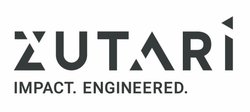Effective implementation of PPPs is critical to address infrastructure deficit in Africa
African leaders have consistently expressed their desire to support Africa’s economic development through a common market for goods and services. A 2016 report by McKinsey projects that Africa’s manufacturing “output could expand to nearly $1 trillion” by 2025 if Africa’s manufacturers upscaled to meet domestic consumer and business demands. This will require inter-sectoral collaboration between business and governments to address obstacles to production and exporting of goods.
Recognising these and other market opportunities, aspirations for Africa’s development have begun to translate into policy-making: The African Free Trade Agreement underscores regional policy efforts towards this goal; the AU’s Programme for Infrastructure Development (PIDA) is an outcome of a coordinated policy effort to unlock competitive opportunities; and, in South Africa, the recent adoption of the District Development Model shows a localised shift, mirroring intra-regional policy trends.
While much research, advocacy and institutional work is ongoing towards reshaping African policies to support effective integration, this goal relies on the effective implementation of Public-Private-Partnerships (PPPs) as a mechanism. The PPPs which undertake infrastructure projects unconsciously mediate a social contract between governments and citizens against which to monitor performance.
Our ability to leverage innovative regional development hinges on the translation of infrastructure development practices across the entire development process. It is clear that infrastructure delivery – and the quality of leadership, governance and public-private cooperation required for its development – both exist as grand challenges in their own right and underpin the interventions necessary for many others.
As Africa joins the global effort to attract funding from large global institutional investment vehicles, its ambitions are being matched through more integrated policy making, redesigned finance instruments and project execution practices and project information systems that support performance monitoring.
For visions of shared prosperity, regional integration and intra-continental strengthening to translate from policy through to development practices (across the value chain), and service delivery performance, calls for embodying a developmental identity and embedding an innovative mindset at multiple levels throughout the sector and across the infrastructure delivery value chain.
We are pushed to be resourceful, intelligent and wise; we are required to be adaptive, to develop our talents, our capacity; and we certainly need to cultivate the motivation and commitment to see through this multi-generational task.
Ends
Notes to the Editor
To download hi-res images for this release, please visit http://media.ngage.co.za and click the Zutari link to view the company’s press office.
About Zutari
As engineering consultants and trusted advisors, Zutari co-creates an engineered impact that enables environments, communities and economies to thrive. Few others can match our local capacity, long-standing presence and understanding of the challenges required to operate successfully across various regions in Africa.
We have created an impact across Africa for the past 90 years (1932 to 2022) and remain committed to this continent, making us the perfect partner to those less familiar with working in Africa. We are experienced in international projects and our Global Design Centres allow us to bring world-class solutions to our clients.
As a private management-owned company, our commitment is true and we have vested interest in our clients’ success. Our strong relationships allow us to connect the right expertise, processes and resources to match client’s needs and bring stakeholders that have shared interests together.
We blend the old and the new. We have moved beyond traditional engineering and work collaboratively to integrate technical and creative thinking. This process of co-creation allows us to unearth new opportunities with our clients and partners.
Zutari’s broad collective of in-house, industry-recognised engineering consultants and trusted advisors provide seamless and integrated delivery. This unique ability to offer scaled engagement allows Zutari to solve complex challenges more efficiently.
Grounded in digital engineering, we continuously deliver better results.
Zutari Contact
Rashree Maharaj
PR and Media Advisor
Email: Rashree [dot] Maharaj [at] zutari [dot] com
Tel: (012) 427 2000
Media Contact
Rachel Mekgwe
Account Executive
NGAGE Public Relations
Phone: (011) 867 7763
Fax: 086 512 3352
Cell: 074 212 1422
Email: rachel [at] ngage [dot] co [dot] za
Web: www.ngage.co.za
Browse the NGAGE Media Zone for more client press releases and photographs at http://media.ngage.co.za

